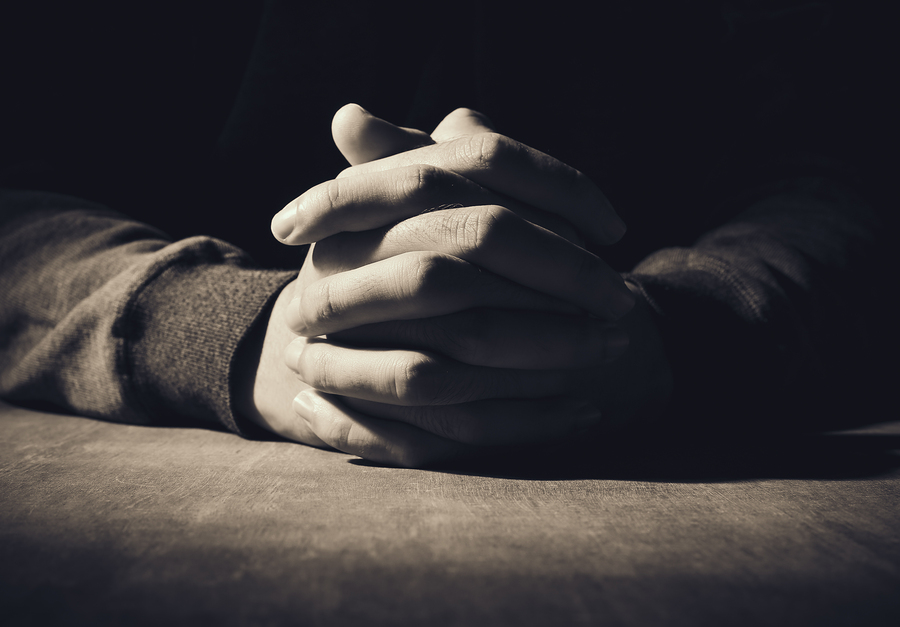
Do you ever find yourself repeating the same requests over and over and wonder, “Is anyone really listening?” I take some consolation in remembering that Jesus, too, had unanswered prayers.
According to Luke, Jesus spent an entire night in prayer before choosing the twelve disciples. Yet if you read the Gospels, you marvel that this dodgy dozen could be the answer to any prayer. They included the traitor Judas Iscariot, the overly ambitious Sons of Thunder, and the hothead Simon Peter, whom Jesus would once address as “Satan.”
I wonder if, in a private moment, Jesus prayed something like, “Father, I wanted the best twelve disciples, not these thickheads.” He came close in this sigh of dismay over the Twelve, “O unbelieving and perverse generation, how long shall I stay with you? How long shall I put up with you?”
I find it comforting that while on earth Jesus faced the same limitations as does anyone in leadership. Whether you’re the CEO of a large company or the parent of a small family, at some point you have to let go and trust those to whom you delegate. The Son of God himself could only work with the talent pool available.
![]()
Another unanswered prayer occurred in the Garden of Gethsemane when, in Martin Luther’s phrase, “God struggled with God.” As Jesus lay on the ground, his sweat falling like drops of blood, his prayers took on an uncharacteristic tone of pleading. He “offered up prayers and petitions with loud cries and tears to the one who could save him from death,” Hebrews says. But of course Jesus was not saved from death.
In the darkness Jesus felt acutely alone, for his closest friends had all fallen asleep. “Could you not keep watch for one hour?” he chided. I for one am glad that Jesus didn’t face death with Socratic composure. He experienced fear, and perhaps indignation, like most of us who suffer.
A dramatic change takes place, however, between that scene in the Garden and what follows. The Gospel accounts of Gethsemane show a person in anguish. Afterwards they show one who, more than Pilate, more than Herod, seems in utter control. At his trials Jesus is no victim; he is serene, unflappable, the master of his destiny.
What happened that night in the garden? What made the difference? We don’t know the content of Jesus’ prayers, since potential witnesses were all dozing. He may have reviewed his entire sojourn on earth. The weight of all that remained undone may have borne down upon him: his disciples were unstable, irresponsible; the movement seemed in peril; God’s chosen people had rejected him; the world still harbored much evil and much suffering.
Jesus approached the very edge of human endurance. He no more relished the idea of pain and death than you or I do. “Everything is possible for you,” Jesus pleaded to the Father; “Take this cup from me.” Somehow, though, in Gethsemane Jesus worked through the crisis by transferring the burden to the Father. It was God’s will he had come to do, after all, and his plea resolved into these words: “Yet not what I will, but what you will.” Not many hours later he would cry out, in profound summation, “It is finished.”
How many times have I prayed for one thing only to receive another? I long for the personal detachment, the faith, that I see worked out in Gethsemane. God alone is qualified to answer prayer, and at some point we have to let go and trust God, who can transmute our self-focused requests into an unimaginably larger plan. When Jesus prayed to the one who could save him from death, he did not get that salvation; instead, he got the salvation of the world.
![]()
One more unanswered prayer appears in an intimate scene recorded by John: Jesus’ final supper with his disciples. That evening the scope of Jesus’ prayer expands far beyond the walls of the upper room, to encompass even those of us who live today:
My prayer is not for them [the disciples] alone. I pray also for those who will believe in me through their message, that all of them may be one, Father, just as you are in me and I am in you. May they also be in us so that the world may believe that you have sent me. I have given them the glory that you gave me, that they may be one as we are one: I in them and you in me. May they be brought to complete unity to let the world know that you sent me.…

Disunity virtually defines the history of the church. Pick at random any year of history—pick today—and you will see how far short we fall of Jesus’ final request. The church, and the watching world, still await an answer.
Jesus’ best-known prayer contains this line: “Your kingdom come, your will be done, on earth as it is in heaven.” So far that, too, remains unanswered. Human history hangs in the balance, suspended between the already and the not yet.

Don’t miss the next post!
Subscribe to Philip Yancey’s blog here:



Leave a Comment